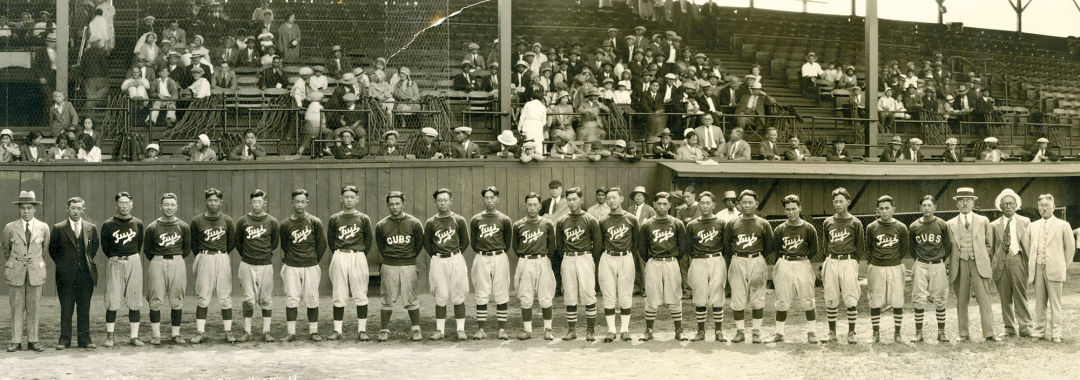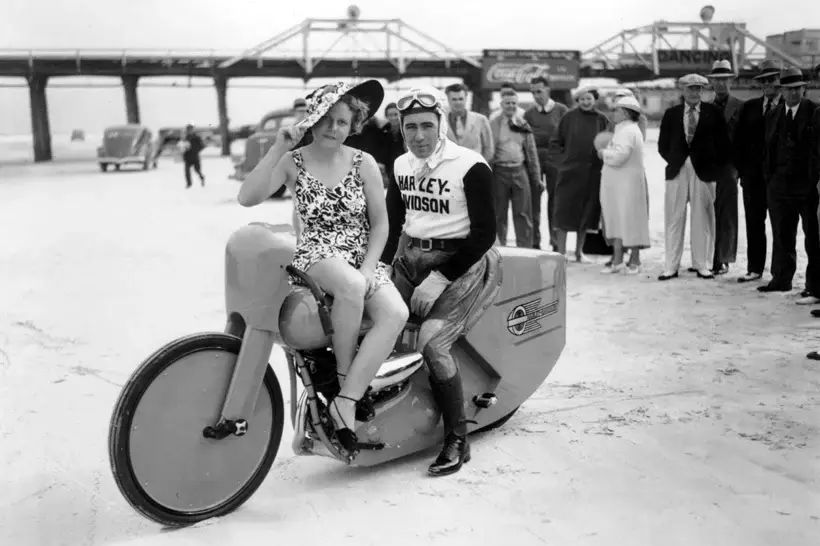Old Portland Had Its Own Super-Cool All-Japanese Baseball Teams

Players stand along the baseline for a ceremonial photograph. Fans take their seats in the stands behind them. Snapped on a sunny July day in 1931 at the Portland’s main ballpark on NW Vaughn Street, the image somehow leaps into the future to capture the hippest baseball team of 2019.
Fuji Athletic Club was launched in 1927 and orchestrated by Frank Fukuda, a renowned coach and manager who was born in Japan and immigrated to Seattle as a teenager. He spent two decades there before a stint in Portland. The amateur team competed in a network of Japanese American teams, leagues, and tournaments—many started or run by
Fukuda—all over the Northwest. Seattle’s deep Courier League and Portland’s own formidable Nippon Giants played some of the best baseball around, in an era when major-league territory stopped in St. Louis.
Today, fans of throwback culture have revived Fuji AC: Ebbets Field Flannels, a Seattle retro-apparel company named for the Brooklyn stadium demolished in 1960, counts caps, sweaters, and jackets featuring Fuji’s old-timey logos among its strongest sellers. “Fukuda kept coming up,” says Ebbets Field founder Jerry Cohen of the company’s historical research. “We found a team picture where instead of regular baseball jerseys, Fuji seemed to be wearing a sweatshirt which had the Mt Fuji logo on it. That was a great discovery.”
Ebbets makes a lot of Japanese baseball-related products, including reproduction hats, uniforms, and jackets for Japan-based pro teams as well as Japanese American clubs. According to the company, Fuji outsells other Japan-related merch in almost every category. But as Ebbets acknowledges in a story about Fuji on its website, this hipster appeal comes with a poignant edge: “When the United States government put the Japanese community into internment camps in 1942, the ... ballclubs that Fukuda spent a lifetime building ... died and were never revived.”




